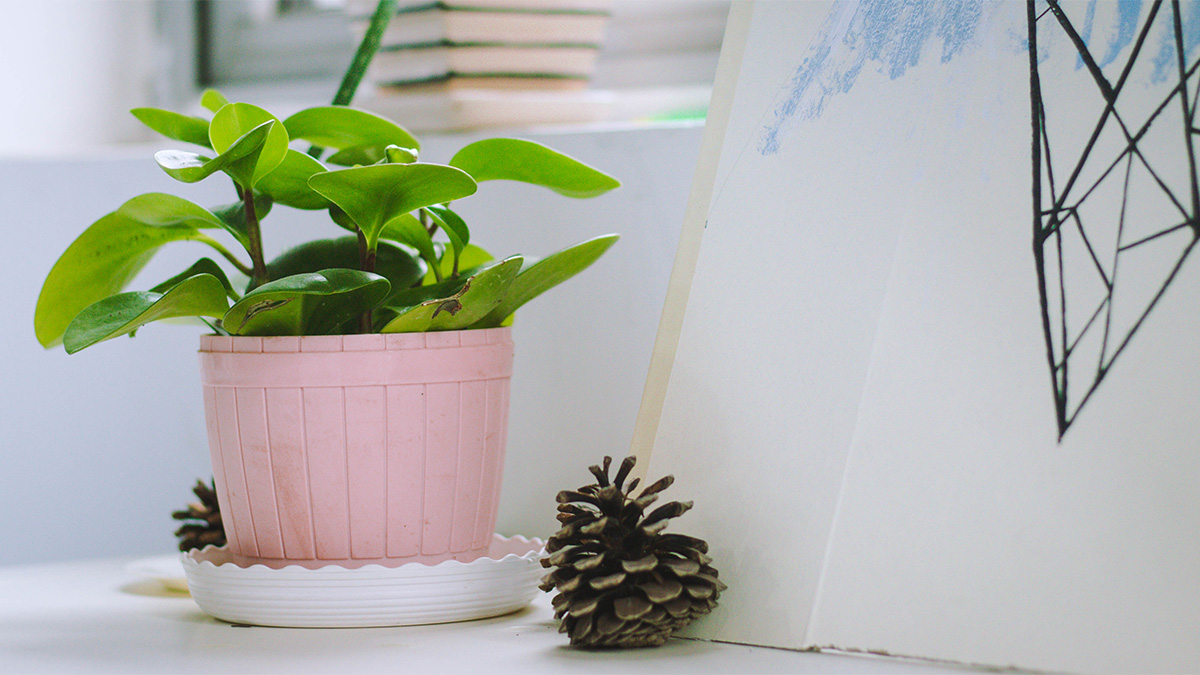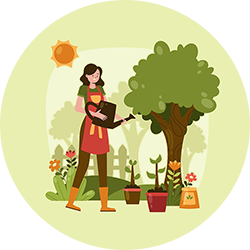Essential Tips to Keep Your Small Potted Plants Healthy

Small potted plants can brighten any space, but they often need a little extra attention to stay healthy. With limited soil and fast-changing moisture levels, these compact plants benefit from thoughtful care and consistent routines. By understanding what they need, you can help them thrive on windowsills, desks, or any corner of your home.
Why small potted plants need special care
Small potted plants face unique challenges because they have limited soil and root space. Moisture levels can change quickly, and nutrients wash out faster than in larger containers. Understanding these differences helps you care for them more confidently.
Tip 1: Choose the right pot
The pot you choose affects how well your plant grows. Make sure it has drainage holes so excess water can escape and roots stay healthy. Terracotta, ceramic, or lightweight plastic pots each offer different benefits, but the key is selecting a size that supports steady growth without overwhelming the plant.
Tip 2: Use a suitable potting mix
Small pots need a potting mix that drains well but still holds enough moisture. Lightweight mixes with components like perlite or coconut coir help create airflow around the roots. Avoid using garden soil, as it compacts quickly and makes it harder for small plants to grow.
Tip 3: Water carefully and consistently
Smaller pots dry out faster, so regular watering is important. Water the soil slowly to ensure it absorbs evenly and doesn’t pull away from the inside of the pot. Watch for signs of overwatering, such as yellowing leaves, or underwatering, such as dry, crisp foliage.
Tip 4: Give your plants the right amount of light
Each plant has different lighting needs, so place them where they receive their preferred level of sun. Small pots can heat up quickly in direct light, so keep an eye out for wilting or pale leaves. Adjusting the plant’s location can help prevent scorch or stretching.
Tip 5: Feed lightly but regularly
Nutrients wash out faster in small containers, making regular feeding important. Use a gentle, balanced fertilizer every few weeks during the growing season. Start with a diluted strength to avoid overwhelming the plant’s roots.
Tip 6: Keep an eye on humidity and airflow
Indoor air can be dry, especially during winter, which affects small potted plants more quickly. You can increase humidity by grouping plants together or placing a small tray of water nearby. Good airflow also helps prevent mildew and reduces the chance of pest issues.
Tip 7: Repot when necessary
Even small plants need room to grow. If roots begin circling the pot or poke through drainage holes, it’s time to move the plant into a slightly larger container. Handle the roots gently during repotting and refresh the soil to give the plant a strong start.
Extra tips for long-term success
Rotate your plants regularly so they grow evenly toward the light. Wipe dust from the leaves to help them absorb sunlight more effectively. Check soil and foliage often, as spotting early signs of pests or stress makes them easier to fix.
Conclusion
Caring for small potted plants becomes much easier when you know what to look for and how to support their growth. With the right pot, soil, and light, these tiny plants can stay healthy and full of life. A few simple habits keep them looking their best and make indoor gardening more enjoyable every day.
